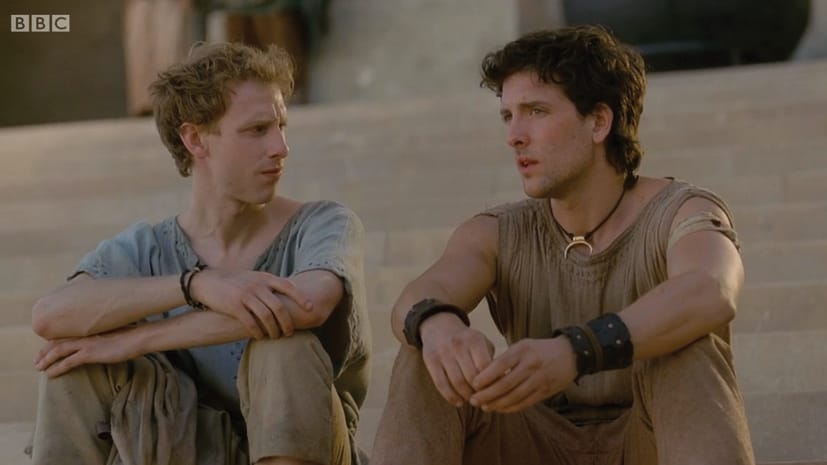A bewildering journey into Ancient Greece
Emily Fulham reviews the latest fantasy offering from the BBC

With the demise of Merlin, the BBC were clearly in the market for a new family-friendly fantasy drama to fill the Saturday evening slot. Enter Atlantis, a retelling of the legend of Greek hero Jason, best known as leader of the Argonauts and slayer of the minotaur. Well, "retelling" is perhaps a slight exaggeration: in reality, Atlantis fea-tures a bizarre mish-mash of Greek mythology with real historical figures, with an extra dash of time travel to keep things interesting.
If the above sounded confusing, then welcome to my reaction as I settled down to watch the first episode. We open in the present day, with our young hero Jason preparing to journey underwater in search for his father, lost at sea in a submarine accident. As the underwater vehicles ventures into the depths, Jason finds himself sucked into an oracle (helpfully labelled ‘Oracle’) which is apparently a portal to the ancient city of Atlanis - before it sank into the sea, that is. This portal has the additional feature of stripping its user of all clothes, leaving Jason washed up, stark naked, on an empty beach.
Jason, although having a body sculpted by angels, is apparently not too bright, as upon entering Atlantis (now, unfortunately, clothed) he manages to piss off a two-headed lizard into chasing him around the marketplace, leading to much unnecessary destruction and disruption. He’s finally rescued by a young man his own age, who introduces himself as Pythagoras.
It’s at this point that the show’s decision to conflate the entirety of Greek mythology with actual ancient history becomes jarring: I’m completely on board with magic underwater portals to legendary cities, but Pythagoras was a real historical figure born circa 560 BC, whereas the story of Jason and the Argonauts is set around 1300 BC, a generation before the Trojan war, and was already being told as a bedtime story in 800 BC. Any further semblance of adhering to historical accuracy is thrown out of the window when Pythagoras introduces his housemate, the demi-god Hercules - now a washed up, chubby alcoholic, played by Game of Thrones’ Mark Addy.
Jason and Pythagoras become best mates after a Hunger-Games style ceremony to select the annual sacrifices to the local minotaur results in Jason volunteering in the young mathematician’s place. After slaying the minotaur with some help from a beautiful princess, Jason is accepted as the hero and saviour of Atlantis, showing remarkably little concern with getting back to everyone he’s left behind in the modern world.
Presumably, at some point the show will build up to Jason’s epic quest sailing around the Mediterra- nean in search of the famed Golden Fleece which will restore his rightful throne. Personally, I’d like to see the episode where, according to legend, Pythagoras goes mental and kills a load of his followers because he can’t get his head around irrational numbers (to be fair, I struggled with the concept as well), but I have a feeling that this is another part of ancient Greek history which will be shelved.
For anyone who watched Merlin, the similarities are plain to see - lots of talk about destiny, a vaguely homoerotic friendship between two young men from different walks of life, some less than stellar CGI monsters - and at times, Atlantis does seem to be lacking in originality. Perhaps I’m being too harsh on what is, after all, the first episode of a family show designed for light entertainment; The Iliad it ain’t, but Atlantis is entertaining enough, if you’re prepared to throw logic out of the window and go along with the ride. For that reason, the show may be worth sticking with for a few more episodes to see if it picks up; if nothing else, to see how many other Greek mythological figures they can fit into the one show.









